My 2-Year-Old Is Severely Allergic To A Half Dozen Foods; Here’s Everything I Wish I’d Known Before Finding Myself In The Thick Of It
Hi there! I’m Raylyn, a stay-at-home mom to two very energetic humans — including one who has food allergies. Because of this, my purse is always filled with crackers, wipes, and an EpiPen.
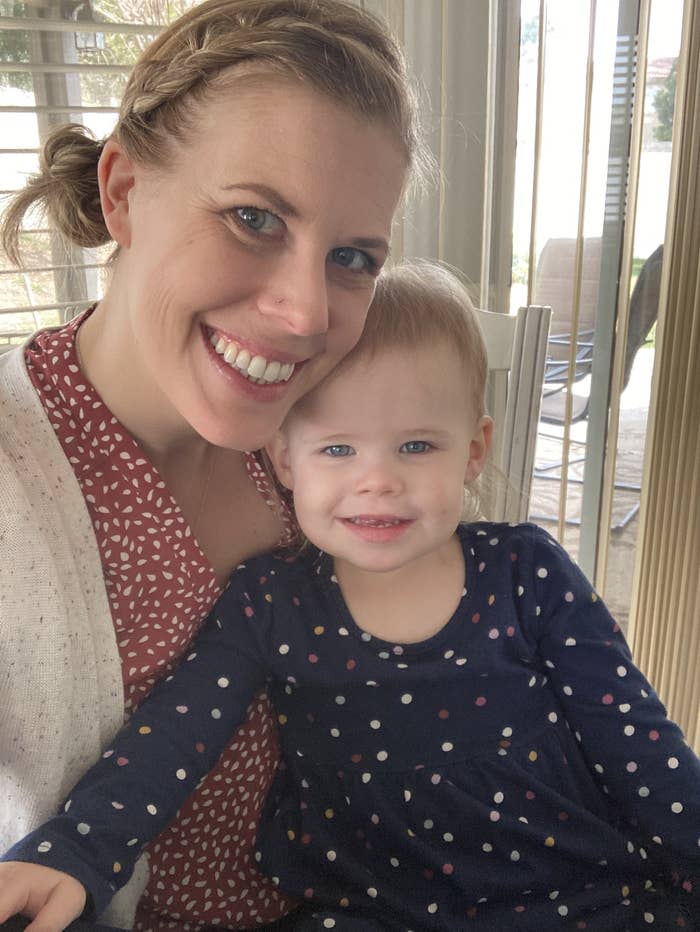
At just 8 months old, my youngest started throwing up after eating eggs, which started our food allergy journey. She’s 2 now and has severe allergies to cashews, pistachios, avocados, mangoes, kiwi, and chestnuts. This is all despite neither my husband’s family nor my own having a history of food allergies.
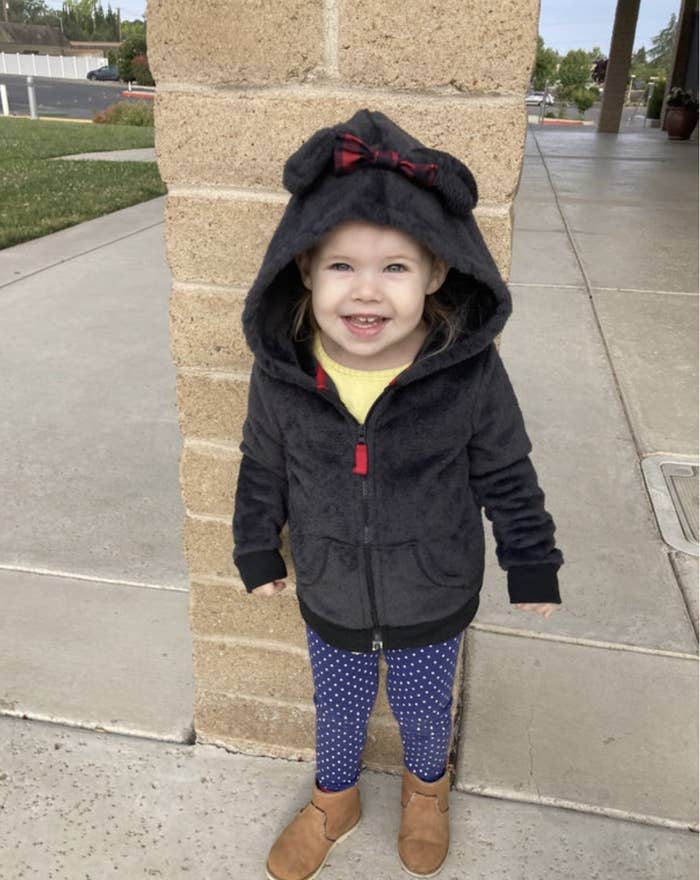
While my job as a mom includes potty training, school drop-offs, and making Dino nuggets, it also includes researching restaurant menus, wiping down every public surface, and bringing my own food to birthday parties.
Having a food-allergic kid is stressful and takes A LOT of work, but she’s a happy, normal kid outside of carrying an EpiPen and not being able to have free samples at Costco. While my family collectively mourns for the loss, here are a few things I wish I had known about food allergies before finding myself in the thick of it.
However, please note that food allergies can vary significantly from person to person — and no two situations are alike. For more information, always consult with a licensed medical professional.
1.No family history of allergies doesn’t mean no chance — listen to your gut and look for the signs.
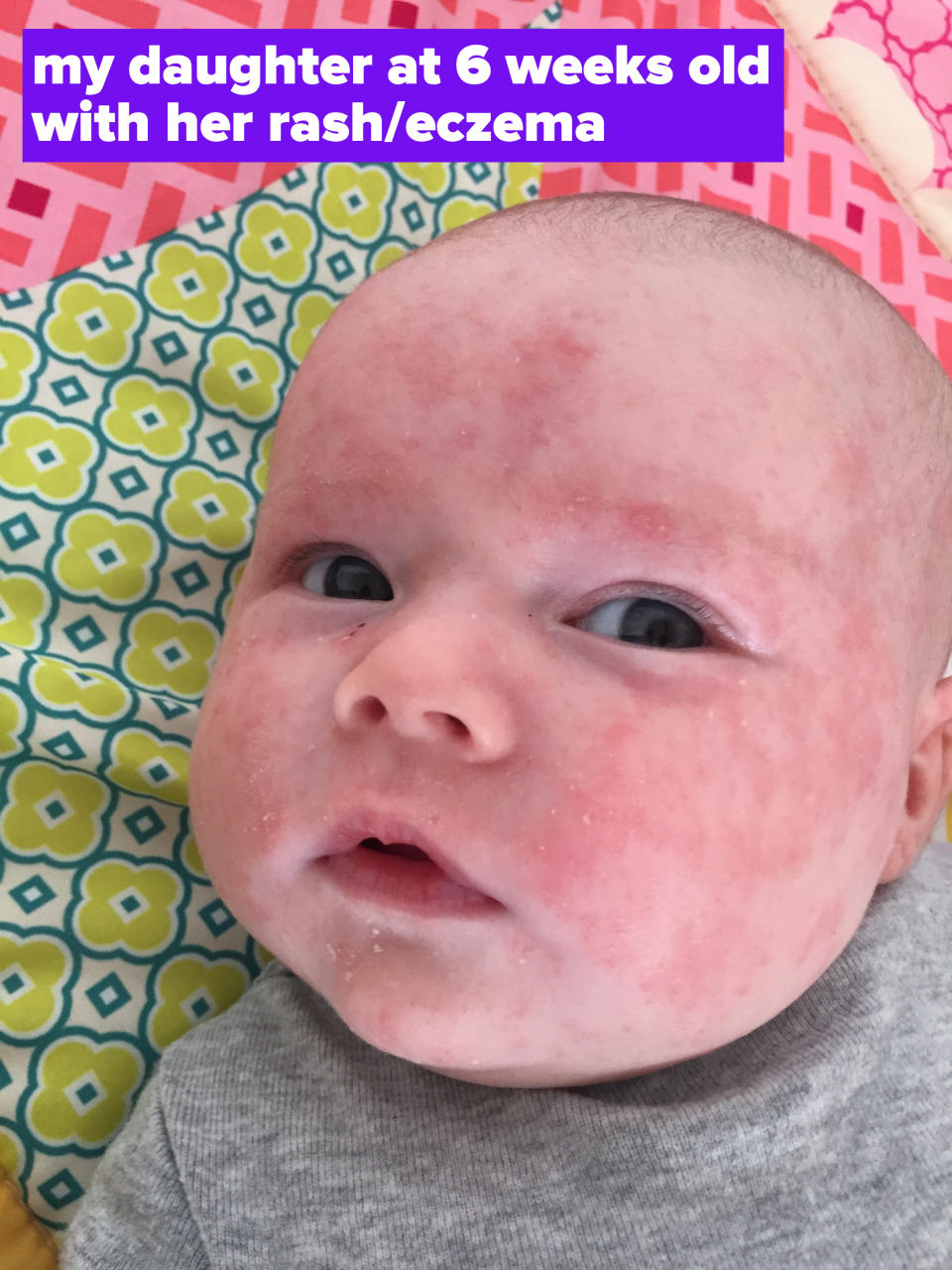
As mentioned, neither my husband’s family nor my own have a history of food allergies. We figured we were in the clear and took a pretty casual approach to introducing solids to our kids. However, family history — or genetics — is only one piece of the puzzle and doesn’t apply to all cases.
A red flag went up when my daughter started throwing up after she ate eggs. Food allergies aren’t just about discomfort or difficulty breathing — they can also affect the lungs, skin, gut, and even brain function.
If your child seems to be acting off, be on alert — especially if they don’t have the ability to speak. Not all food allergies will result in anaphylaxis — deep sigh of relief — so be on the lookout for hives, rashes, vomiting, and diarrhea, to name a few other signs.
Some early warning signs before introducing solids can be eczema and other skin conditions, but that’s also by no means a guarantee an allergy will go in either direction.
According to CDC findings, between 1997 and 2011, the prevalence of food allergies in kids increased by close to 50%. Family history definitely plays a part, but it’s not the only thing that matters.
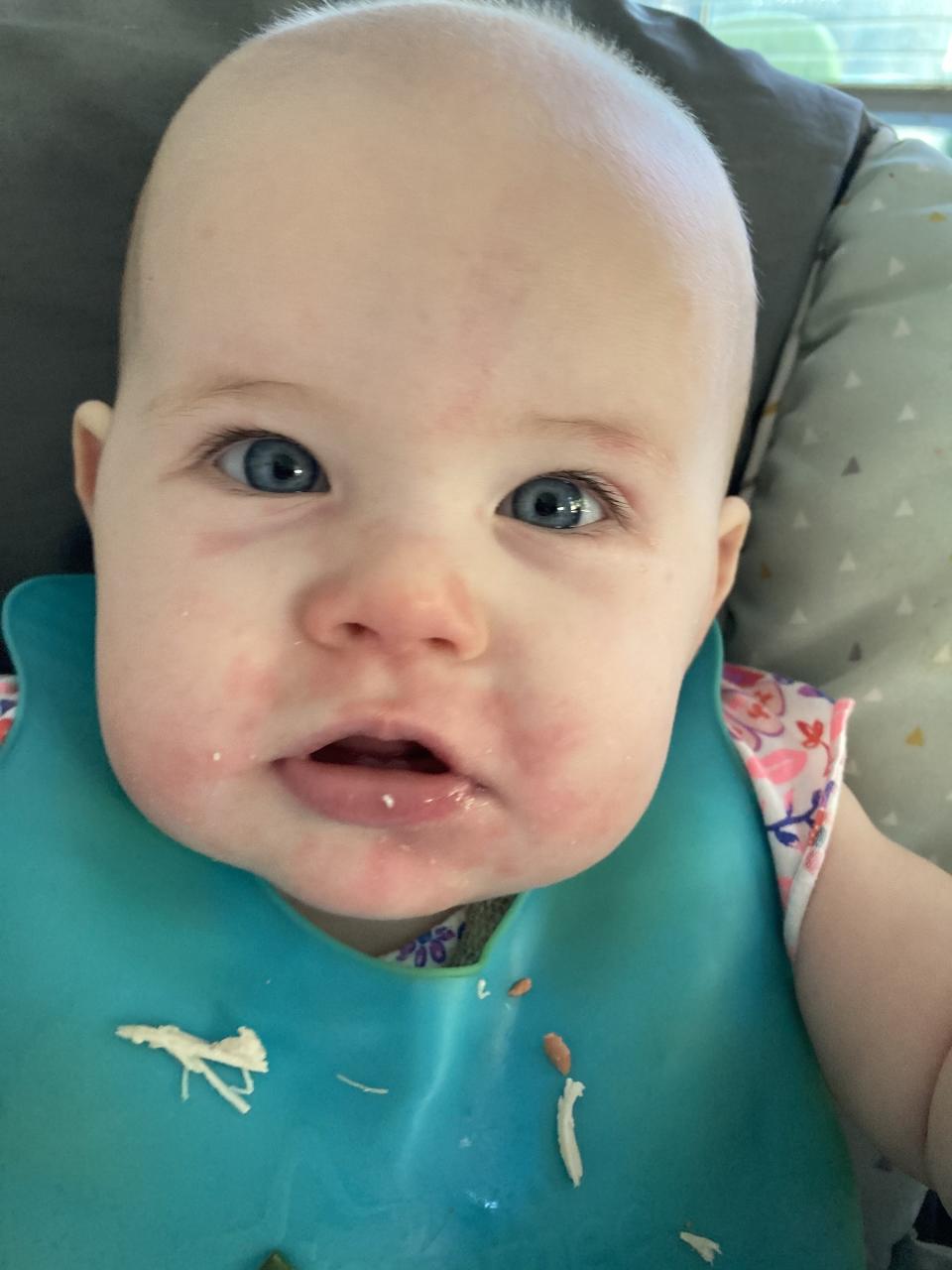
In our experience, the food rashes started around her mouth and began spreading upward immediately after eating, but her vomiting episodes would take place a few hours after eating eggs. While you can Google pictures, if you’re paying attention, the signs can pretty easy to spot once you're familiar with them. The image above is what ours looked like.
2.If you do encounter signs of allergies, find a medical professional you can trust — knowing that it will likely take a fair amount of trial, error, testing, and time.
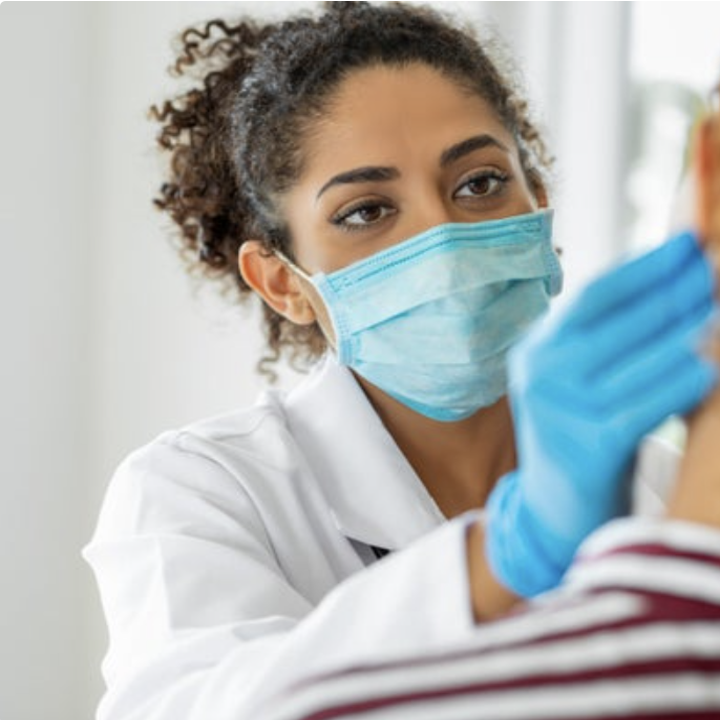
As mentioned, my family's food allergy journey started when my daughter started vomiting after eating eggs. Immediately, we went to our pediatrician, who prescribed an EpiPen in an abundance of caution and referred us to an allergist.
The allergist conducted a skin test — where they poke the skin with needles that have been coated in an allergen — where we could confirm the allergy. This process has continued as more allergies pop up.
We still go in for yearly testing to check on my daughter's levels, and get blood draws and skin prick tests. If our allergist feels comfortable with how the allergies have progressed, they may recommend a food challenge, where the food in question is eaten in the office to look for a reaction. If there's no reaction, the child can eat the food again.
A few notes on this process: Find a pediatrician that listens to you. Ours took no time in prescribing an EpiPen and getting our daughter to an allergist, and we are so thankful for that. If you know something is wrong, don't be afraid to get a second opinion or push for testing. Second, find an allergist you're comfortable with and that you trust. Keeping your child safe and alive is a team effort, and you don't want to be the only one participating. You dealt with that enough in high school.
3.Remember that allergies can pop up at any time — for any reason.
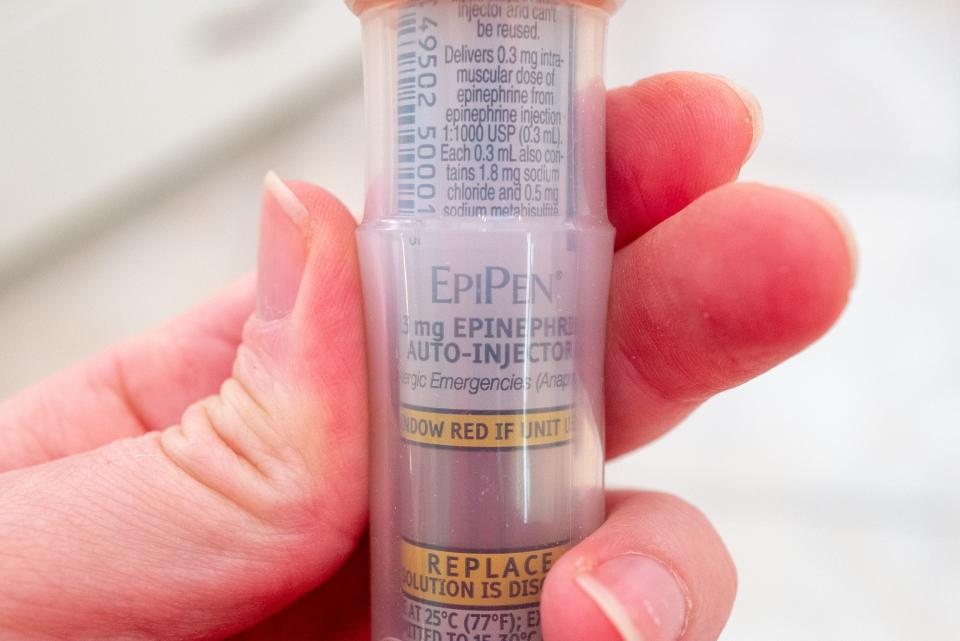
This spring we had a dinner that was 100% “safe” for my daughter, but it sent her into anaphylaxis — a severe and potentially life-threatening allergic reaction. After blood tests and skin tests, we discovered a sudden allergy to mango and avocado — two foods that had been a very regular part of her diet until that point. There isn’t always a warning sign, and allergic reactions can take from a few minutes to a few hours to present. If your kid looks or acts differently, don’t wait around to act.
Also, remember that not all allergies are part of the common “top 9,” so pay attention even after you’ve introduced things like peanut butter and fish.
4.The belief that a child can develop allergies because they are overly "sheltered" is not only harmful, but it's also untrue.
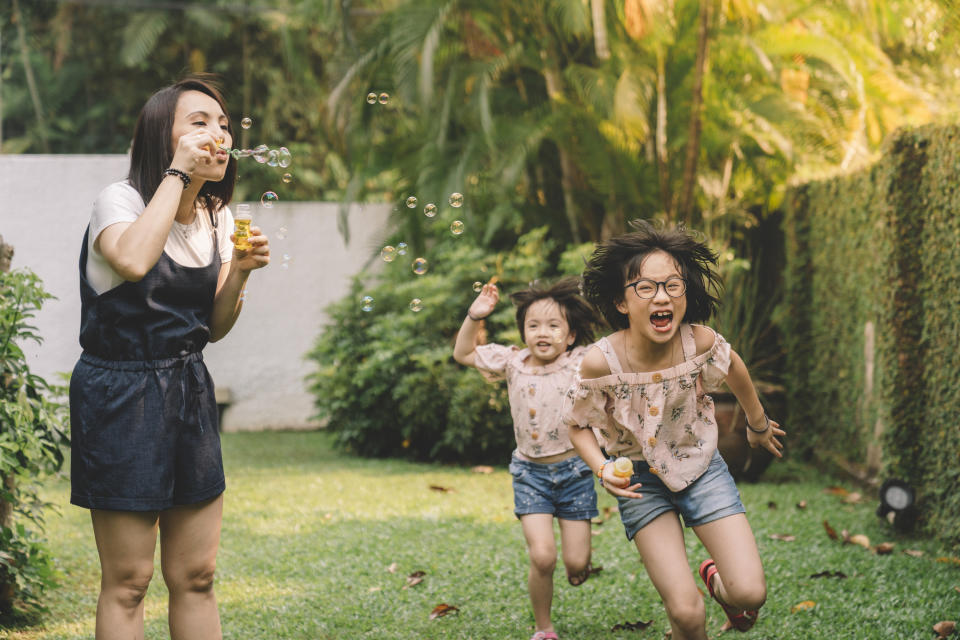
My children did not get food allergies because they "haven’t played in the dirt enough" or because they weren’t "exposed to enough colds" — and those are myths I wish society would stop perpetuating.
According to the CDC, currently 1 in every 13 kids has a food allergy — so roughly two in every classroom — and it’s usually not because the kids were "sheltered." In fact, my own child was reacting through breastmilk, and it definitely was not because I didn’t throw my 6-week-old into a mud pit to play.
5.Previously, I was under the impression that anaphylaxis looks like Will Smith in Hitch — or: easy to spot — but that's not always the case.
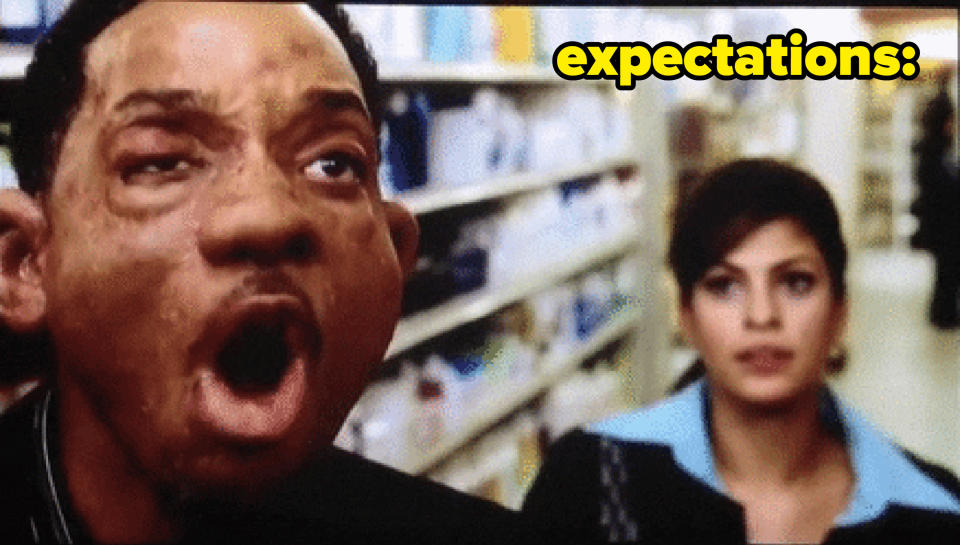
Remember Will Smith in Hitch when he turns around and he’s swollen out of nowhere? When my own daughter had an anaphylactic response, we didn’t recognize it until it had gotten serious, thanks to a cold she already had masking a few of the warning signs.
Anaphylaxis can affect the skin, GI tract, and other systems before that level of facial swelling happens — and it can happen gradually. In the moment, it is not guaranteed that you turn around and your child’s face is suddenly swollen.
We kept seeing her lip get bigger, but it wasn’t until it had gotten huge that we grabbed our response card, which we keep on our fridge at all times. It is the main reason we were able to figure out that she wasn’t having a minor reaction. Even if your kids don’t have food allergies, this is an invaluable resource — and one that's free to download, save, or print out.
Signs to look out for — especially for a child who doesn’t speak yet — include lethargy, swelling, rash, hives, GI upset, and difficulty breathing. When my daughter went into anaphylaxis, she was pointing at her throat and mouth saying, “Tickle!” before her nose started running and her lips and eyes started swelling.
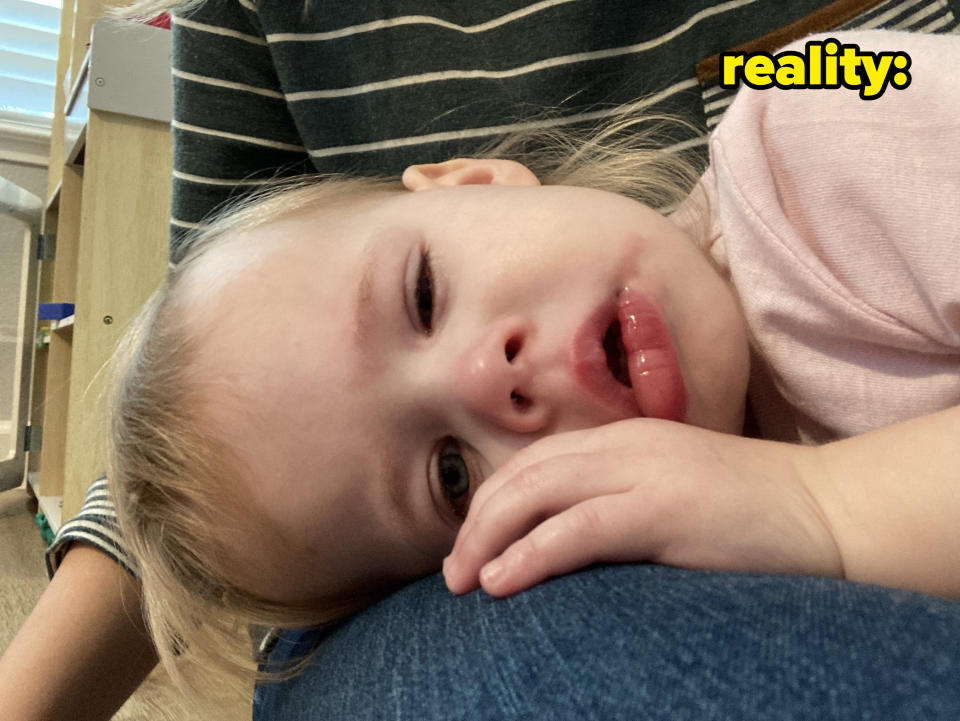
A good rule of thumb is when more than one system is affected (for example, a rash AND facial swelling or vomiting AND hives), there's a chance you've entered an emergency situation. If you have an EpiPen, use it first, and then call 911.
6.Cross-contamination is a very a real thing — and a little bit of food can do a lot of harm.
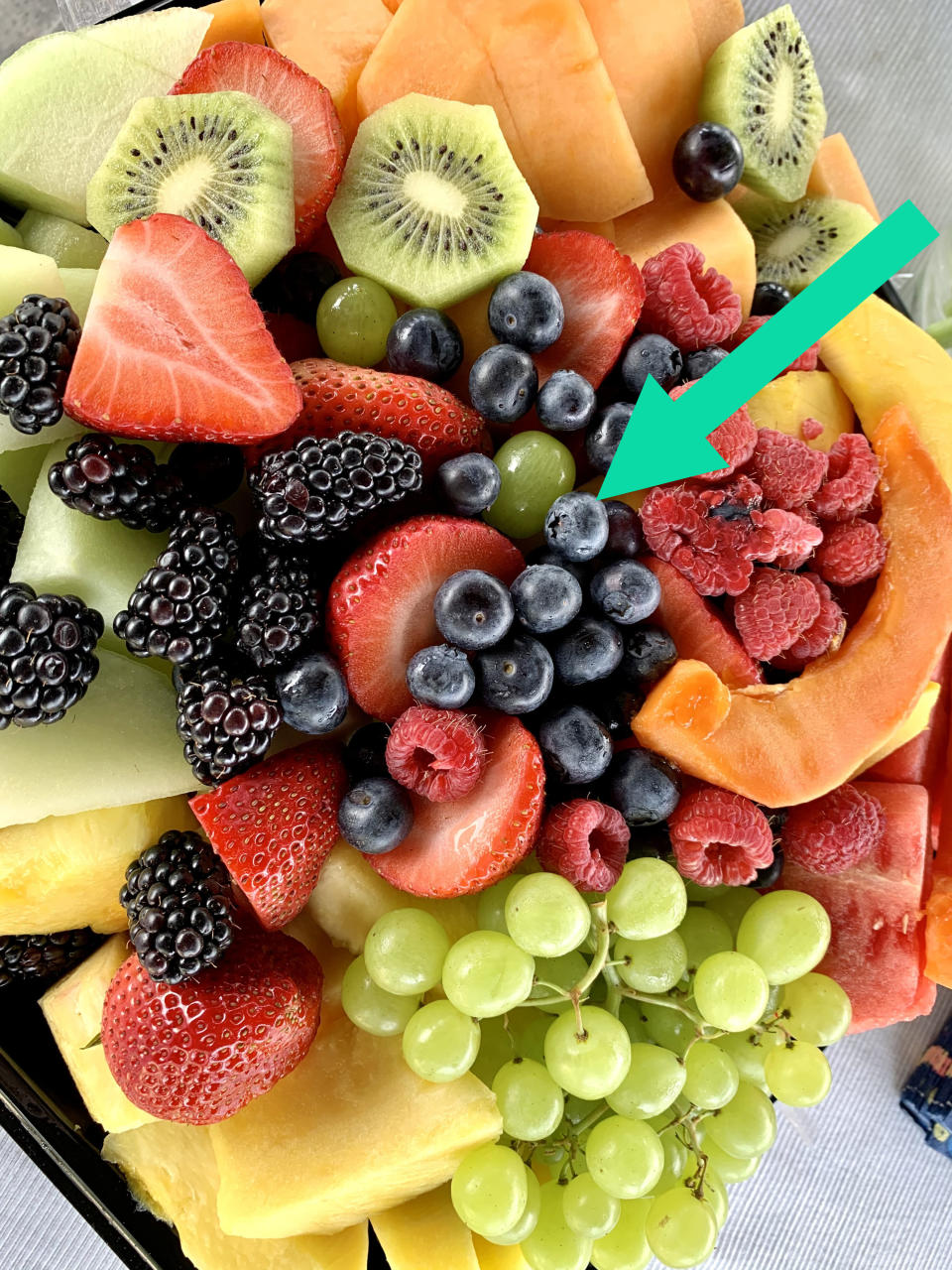
During my daughter’s anaphylactic reaction, she didn’t actually eat mango or avocado — she ate a blueberry that had touched those items.
That's why I want to reiterate the importance of avoiding cross-contamination — as well as underline that for some people with allergies, the tiniest hint of the allergen can set things in motion.
One of my biggest gripes is those who are quick to dismiss this, thinking that if it's just a crumb, it's not a big deal. Not true. One person’s crumb is another person’s ER bill.
Along with eating a food, some allergies are contact-based, meaning a person can’t touch it without reacting. Others allergies are airborne, meaning a person can react if the allergens are in the same room, though these are rarer.
7.Early exposure is SO important, but can also be kind of a crapshoot, so don’t blame yourself for not “doing enough."
Don’t get me wrong here — studies consistently show that exposure in-utero and early and consistent exposure to highly allergenic foods can help prevent food allergies. You definitely want to do that! However, it’s not 100%. I ate plenty of my daughter's allergens routinely during pregnancy. Who knew?
When I found out that my daughter’s eczema at 6 weeks old was thanks to my favorite nursing snack of cashews, the guilt poured in. Food allergy parents carry around a lot of guilt, and through this process I’ve learned to give myself grace. It’s no one’s fault, and if you’re in the thick of it, I promise you that doing what you could was enough.
8.It's easy to get lost in the fear of it all, but taking the time to educate yourself — and then taking action — can help counteract that fear.
NBC/Saturday Night Live / Via giphy.com
Information and knowledge are power. Many parents are afraid of food allergies and have nightmares about it as they begin introducing their infants to solids. However, it's worth reiterating that the majority of kids DON’T have food allergies and there’s no reason to live in fear if you’ve prepared yourself and have done your research.
If your child is diagnosed with a food allergy, I encourage you to let yourself be sad about it and process it — then switch into action mode.
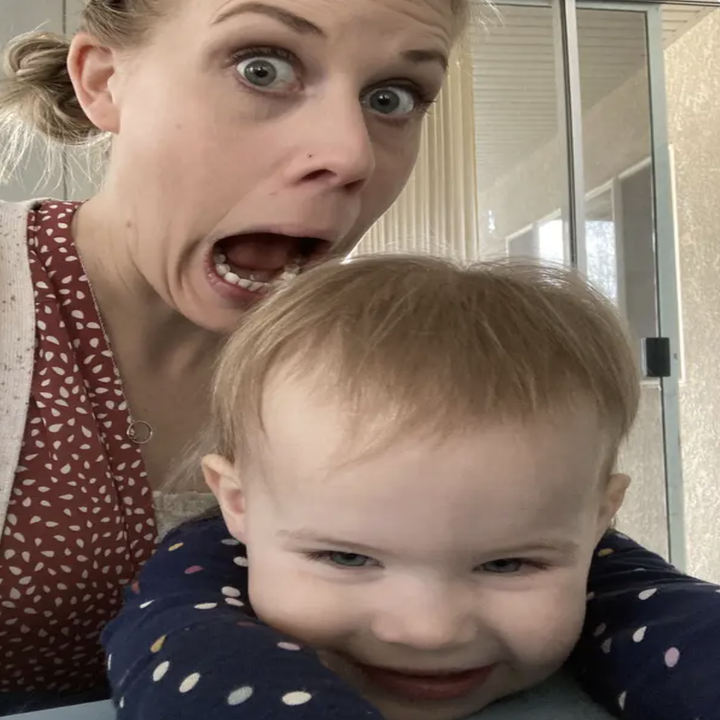
For example, when I found out that most ice cream shops use shared lines with tree nuts, I had a big cry that our family can’t just stop for ice cream — something I’d looked forward to for the future. Then, I researched places where we CAN eat, and we invested in a fairly inexpensive shaved ice machine because our kids deserve to not feel like they’re missing out. It’s scary knowing that I can’t control foods people bring to a park or to a theme park, but that fear can’t allow us to keep her in a box.
Control what you can, do your research, consult with professionals, and help your kid have a safe and full childhood. You got this.
For more information around children and food allergies, I've found these resources to be extremely helpful:
• FoodAllergy.org & School Nutrition Association: Solid overviews of all things food allergy related, as well as a recap of the most common allergy-triggering foods in the US and in schools.
• DJ's Allergies by Jennifer Ormond: Children's book helping to explain allergies to young kids. My daughter loves this book because it mimics her experience, and we bought it for all of her cousins so they could understand others who have food allergies.
• Daniel Tiger Has an Allergy by Angelica C. Santomero: Another great children's book for helping kids understand their own allergies, and for helping siblings to understand, too! My oldest has been a huge help with reminding us about Daniel's rules, even though she doesn't have any allergies.
• Food Allergy Moms Facebook Group: A great resource for information, story swapping, and support from fellow parents.

